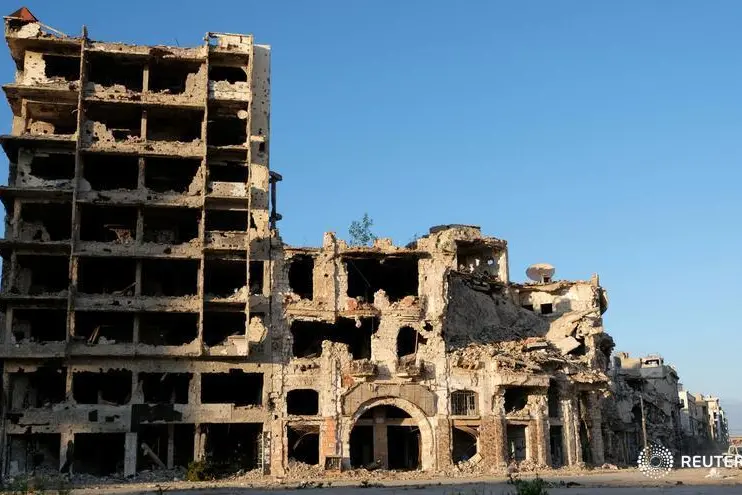PHOTO
The first phase of the proposed reconstruction of Libya will cost an estimated $20 billion, and require more than three million workers, which could provide “a good push” for neighbouring Egypt’s economic fortunes, the secretary-general of the Federation of Egyptian Chambers of Commerce (FEDCOC) has said.
Speaking to Zawya in an exclusive interview on the sidelines of a meeting between the Egyptian and Libyan Chambers of Commerce, Alaa Ezz said that FEDCOC is in negotiation with Libyan counterparts about work in several sectors, including infrastructure, construction, roads, communications, hotels, tourism and other sectors.
“The council is negotiating with international financial institutes to lend Libya the $20bln. It will help the rapid reconstruction operations in different fields,” Ezz said.
He said that a number of development banks have been approached for funding, including the African Development Bank, the European Investment Bank, Development Bank of Japan and the World Bank. He added that some projects could also be brought forward under a Build, Operate, Transfer (BOT) model, adding that “the Egyptian side here will be an investor” in such schemes.
Ezz said there were a number of high-profile Egyptian companies who are due to start work in Libya very soon.
“Orascom Construction, Arab Contractors and El Sewedy Electric have already taken serious steps there," Ezz said.
Reopening trade routes
"We have completed the feasibility studies to set up a global logistics hub near the port of Salloum in the plateau region, not only in order to support bilateral trade, but more importantly, supporting the exports of Egypt and Libya to the neighbouring countries,” Ezz said, adding that he expects trade to improve once Libya regains access to a 10,300km-long East African trade route stretching from Alexandria in the Mediterranean Sea through to South Africa.
He said that Egyptian firms stood ready to work on rebuilding vital infrastructure, such as roads, mobile networks and health care projects.
“We must immediately seek to integrate Egyptian experiences with Libyan investments in Africa for the benefit of both sides,” said Ezz.
Ezz said that non-oil trade between Libya and Egypt had slumped to $455 million in 2018, down from $1.38 billion in 2013.
He said this was “regrettable”, as it meant there had been delays in repayment of debt to Egyptian companies. He also said that it was “unacceptable that the amount of Libyan investments in Egypt has been reduced by 25 percent,” with 511 companies contribution a total of $2.4 billion.
“Similarly, it is unacceptable that Egyptian investments in Libya are only $520 million, and we are in the process of reconstruction," he added.
He said that both sides should work together to benefit from business in the Tripartite Free Trade Area – an economic trading bloc created through agreements signed in Egypt in 2015 between the Common Market for Eastern and Southern Africa (COMESA), the East African Community (EAC) and the Southern African Development Community (SADC).
The free trade area “comprises half of Africa”, with a combined GDP of around $3 trillion, and was the first step towards a free trade area covering the whole of Africa, Ezz said.
He argued that the reconstruction process across the Arab world “needs $200 billion in the coming five years, including Iraq, Libya, Yemen and Syria”.
“Leading Egyptian companies already started working in Iraq three years ago, in 2016, and it is planned to continue work in the three (other) countries as well.”
He said that Egyptian firms are ready to help in all countries by providing feasibility studies and manpower, where needed.
(Reporting by Marwa Abo Almajd; Editing by Michael Fahy)
Our Standards: The Thomson Reuters Trust Principles
Disclaimer: This article is provided for informational purposes only. The content does not provide tax, legal or investment advice or opinion regarding the suitability, value or profitability of any particular security, portfolio or investment strategy. Read our full disclaimer policy here.
© ZAWYA 2019




















